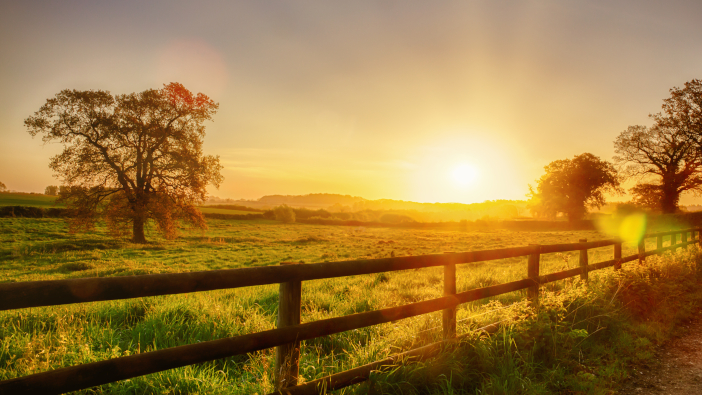Knowledge exchange platform, Forage for Knowledge, is supporting grassland farmers and graziers with everything from general husbandry advice to analysis and data.
Philip Cosgrave, Yara’s country grassland specialist, and Katie Evans, senior knowledge exchange manager at AHDB, have shared their thoughts about the platform and how it is supporting the industry.
Grassland management
A key aim of the Forage for Knowledge platform is to improve grassland management; giving advice on the subject benefits many, particularly the livestock sector.
Mr Cosgrave said: “The great thing about Forage for Knowledge is that it’s data driven. Data is collected on farms, packaged, then reported back to farmers on a weekly basis, allowing them to know what’s going on in their local area overall as well as giving them management advice.
“Through that management advice we can improve grassland and that utilisation rate which will have huge benefits for the livestock sector.”
Better management decisions
The tool can help farmers make many of the challenging decisions on farm, such as coping with drought and getting through the silaging season.
Ms Evans said: “Forage for Knowledge is managed and operated solely by AHDB, and as part of it we have set up a network of 27 dairy farms across Great Britain. Each contributor submits a sample for analysis on a bi-weekly basis and their grass measurements on a weekly basis. This allows us to track how grass growth and quality has been performing across the season, over the years, and what effect weather patterns have had.”
Once these things are identified, the information is shared across the Forage for Knowledge network and the wider industry. This helps improve understanding of grass production across commercial farms.
“Over the years, we have started to build a dataset that has captured grass growth and quality throughout the seasons,” she said. “This helps us identify what are the bigger factors contributing to grass growth on those farms. Once we have that information, we can start to dig down and determine what are the limiting factors on the farms during that period.”
The importance of grassland farming
As grassland is so important to food production systems in the UK, all grassland farmers need to understand how to make the most of their grass. Forage for Knowledge can help grassland farmers at all levels of expertise.
“Grassland is hugely important to our production systems here in the UK, so the more we can make of it, the better it is economically,” said Ms Evans. “Not only that, better grass management will help us reduce the cost of inputs such as concentrates, as well as reducing our overall environmental impact.”
Measure to manage
The key to getting the most from grass is data because what you can measure, you can manage, Ms Evans said.
“Farmers need to know how much they are currently growing on farm as this will give them a baseline. On average across the UK, we’re only growing and producing around 50% of our potential. Looking at the data can help us identify issues on farms or individual fields that are impacting on grass growth and quality, whether it’s grass varieties, soils, or topography.”
Improving industry knowledge
From peer to peer learning in grazing discussion groups, and the sharing of information and resources, Forage for Knowledge is helping the industry as a whole to continue learning and improving. This is something Mr Cosgrave has personal experience of.
“The Forage for Knowledge update arrives in my inbox every Friday,” he said. “It helps inform my decisions around the advice I give, particularly around nitrogen management during dry periods. I then pass the information onto my colleagues which helps them get a better picture of what’s going on from week to week.”
Maximising the benefits of a diverse eco-system
With so much diversity in grassland systems across the UK, could Forage for Knowledge play a role in helping farmers maximise the benefits of diverse grass species?
“Whether it’s upland or more intensive grazing, there’s certainly a move to look at other species and there are a lot of benefits involved,” Mr Cosgrave said. “But I think they require a different level of management and skills as well. I think that this is where Forage for Knowledge and the advisory role that AHDB plays can help.”
Taking that first step
More informaiton about Forage for Knowledge can be found on the AHDB website and interested participants will need to subscribe.
Subscribers can expect to receive a weekly newsletter throughout the growing season, with updates on grass growth across different regions, grass quality, and plenty of historic data, as well as some extras.
“Subscribers will receive some summary management notes and advice from Piers Badnell, one of LIC’s Pasture for Profit consultants,” adds Ms Evans. “This is geared towards helping farmers think about what management decisions they should be considering given the weather, grass growth rates, and quality data provided during that period.”
There’s no cost to farmers for subscribing. Mr Cosgrave said: “Subscribing to the newsletter can help farmers take their first step into rotational grazing or improving their grassland management which can feel a bit daunting. But don’t be put off, because there’s help out there and if they stay the course, they can see real benefits for their farm.”


